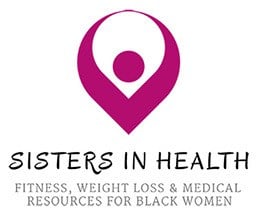It’s that time of year when our daughters are headed off to college for the first time. It’s an exciting and happy time. Our daughters are eager to embark on a new chapter in their lives. For some it’s a time to assert their freedom and independence. Unfortunately young people have this idea that they are invincible, the mentality “that can’t happen to me.” They lack insight as to how certain actions or decisions can lead to irreparable consequences and harm. They lack life experience that prepares them for a world that isn’t so kind, a world where evil is rampant. We live in a world where our daughters are seen as sexual objects that can be preyed upon by men for their own sexual pleasure and perverted sense of entitlement. It is our responsibility as mothers, fathers and guardians to educate our daughters about the dangers of sexual assaults that can occur on college campuses.
Here are some statistics you should know as a parent/guardian:
- 1 in 5 college women experienced sexual assault
- 19% of female students experience attempted or completed sexual assault
- Up to 80% of women report that they knew their assailant
- 17% to 19% of sexual assaults occurred during a date
- Up to 60% of sexual assaults occurred when a woman was incapacitated either with alcohol or with a date rape drug
- Up to 80% of sexual assaults are unreported because of a fear of retaliation, embarrassment or perception they are at fault
Also contributing to the problem is that some women may not perceive an action as a sexual assault. A sexual assault is not limited to vaginal or anal penetration, any type of unwanted sexual contact is a sexual assault, be it fondling or being forced to perform a sexual act on another person.
The effects of sexual assault can be devastating for a woman. The long-term consequences of sexual assault include:
- physical trauma
- post-traumatic stress disorder
- sexually transmitted infections, such as HIV, Genital Herpes, Syphilis or other infections that can lead to infertility
- pregnancy
- depression
- anxiety
- panic attacks
- chronic fear
- substance abuse
- low self esteem
- promiscuity
- difficulty forming or maintaining relationships
- sexual dysfunction, having difficulty with intimacy
Here are some guidelines you can use to educate your daughter about safety:
- Educate you daughter, be explicate in your conversation about the irreparable damage that can come from sexual assault.
- Check in with your child daily, develop a system that connects you frequently.
- Go out to places in groups and keep track of your friends and never leave a party without those you went with.
- Avoid walking alone on campus especially at night.
- Encourage your child not to engage in underage alcohol drinking.
- Talk to them about the use of illicit drugs and how it alters one’s state of mind making one more susceptible to assault.
- Enroll your daughter in a self defense class.
- Reality check, despite all that you teach her, your daughter probably will drink alcohol. So if they do drink, this is what they need to do:
- watch your drinks at all times and watch it being poured
- don’t accept drinks from someone
- pour your own drink
- limit your drugs to avoid intoxication
If the unfortunate happens and your daughter falls victim to sexual assault this is what you should do:
- Make sure your daughter gets medical care and a gynecologic exam.
- If necessary take her away from the college if she feels unsafe.
- Get her counseling.
- Report the incident to police.
- Don’t blame your child for what happened, they need your love, support and attention.
The college experience can be one of the best times in our lives, the memories can be everlasting. We need to protect our daughters so that their college experience can be memborable. Sexual assault has the potential to alter our daughters’ lives forever. It can alter the trajectory of their lives.
by Marjorie Binette, MD









